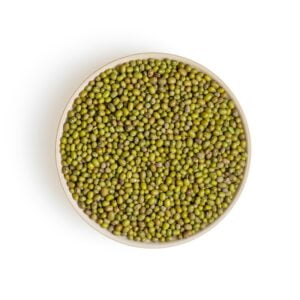Must Try Brain Food for Kids
- Published on:
- Last update: 09 October 2023

As a child’s memory matures, a variety of changes occur. Including the right foods in your child’s diet can help his memory, concentration, and brain function. Our brains absorb nutrients from the food we eat, just like the rest of our bodies. It is essential to feed children highly nutritious foods which promote brain development. Make sure the baby’s diet is packed with nutritious foods for healthy growth and development.
Brain food for kids
Picky eaters often lack essential nutrients because they refuse to consume the food present in the food they refuse to eat. You should ensure your child finishes the given food items regularly, as this will directly impact their cognitive development. Brain food for kids is beneficial for their cognitive development.
As we all know, iron is packed with numerous health benefits. The iron deficiency disorder, commonly known as anaemia, has been discussed over the years. What do we as parents realize about the gravity of the issue and whether our children might also be at risk?
In the end, you can use these healthy food options to stimulate the development of the brain. Your babies are the future, and in our current environment, where there is so much confusion about what to eat. We must follow this diet regime or include brain food for kids because it ensures that our children grow into complete human beings capable of making their own decisions in later life and making a difference.
How Iron Affects Your Baby’s Cognitive Development
Despite iron being the most important and commonly required micronutrient by humans, iron deficiency is the most common nutrient deficiency worldwide. It affects brain functions primarily by harming the development of brain cells.
It means that the baby cannot distinguish familiar sounds from unfamiliar sounds (like that of his mother or father) and is unable to remember familiar sounds, such as those of his parents.
A baby with abnormal reflexes may not be able to respond as intended
Neurotransmitters are chemicals in the body that act as transmitters; they send messages to and from the brain and assist the body’s functions.
Best foods for baby brain development
Eggs
Maintain your child’s energy level throughout the day by filling their breakfast plate with a combination of carbohydrates, protein, and healthy fats. In addition to their protein content, eggs contain choline, essential for memory development. Eggs are a great brain food for kids.
Oily Fish
The Omega-3 fatty acids in oily fish benefit the health and development of the brain. The building blocks of the cell must contain omega-3 fatty acids. Including fish like salmon, mackerel, fresh tuna, trout, sardines, and herring in your diet once a week can help you reduce your risk of cardiovascular disease.
Oats/oatmeal

In addition to providing energy and brain fuel, oatmeal and oats are excellent fibre sources. Kids are satiated and don’t snack on junk food because of the high fibre content. Additionally, they’re loaded with vitamin E, B complex, and zinc, making the brain function better. Any topping can be used, including blueberries, bananas, apples, and almonds.
Colourful veggies
Having access to coloured vegetables can help keep the brain healthy through antioxidants. For example, you can feed your child spinach, sweet potatoes, carrots, and pumpkin. Spaghetti sauces and soups can be a great way to serve vegetables to your child.
Milk, yoghurt and cheese
Protein and B vitamins found in milk, yoghurt, and cheese are essential for developing healthy brain tissue, neurotransmitters, and enzymes. Furthermore, these foods provide a high amount of calcium, necessary for teeth and bones to expand. A child’s calcium needs vary based on age, but two to three calcium-rich sources should be consumed daily. There are other ways for your child to eat dairy: Use milk instead of water when making porridge, pudding, or pancakes.
Beans

You can fill your child’s diet with beans by eating them. They’re high in protein, vitamins, and minerals. Beans like kidneys and pintos contain more Omega 3 than any other type. Mix them with shredded lettuce and cheese and sprinkle on a salad to make the perfect sandwich filler. You can also mash them and spread them on bread to make a sandwich gratin.
Peanuts
Aside from being a great finger food, peanuts are incredibly versatile. If they are ground, you can add them to kheer, your child’s lunch, or other meals. Make peanut ladoos by adding jaggery, which your child will love, especially after playtime when energy is waning. If your child does not consume sugar, jaggery is a great substitute. In general, children should not consume the regular ‘table’ sugar we consume until they are at least five years old. Instead, why not use jaggery? Jaggery provides significant health advantages over sugar, so everyone in the house can switch to it.
Be careful not to overdo it – too many peanuts can also be harmful to your health! Use moderation when eating peanuts.
Chickpea
In the form of dal rice, chickpeas are the easiest and most convenient way to serve your baby or toddler. Rice that is unpolished, can also supply you with dietary iron and act as brain food for kids. You can also make hummus for your toddler if you prefer something different.
Beetroot
Despite having an iron deficiency or feeling weak, beetroot is also recommended for adults. Give your child boiled beetroot for a mid-meal snack to develop the habit of eating beetroot early. It is perfect for finger food if beetroot is diced into small cubes. Your child will love the colourful iron bowl he will create when you mix it with boiled green peas.
Include brain food in the Baby’s diet.

The brain foods for kids mentioned above are best for a child’s brain development. Brain food for kids help in protein synthesis and even fight harmful organisms in the body. These foods are not only essential for children but adults too. The omega-3 fatty acids in salmon and sardines are essential for a good source of nutrition and mind development. The beta-carotene found in carrots, tomatoes, mangoes, sweet potatoes, broccoli, spinach, etc., helps fight off cancer cells and boost the immune system. Vitamin C rich foods prevent colds or infections that hinder the learning process.
Hidden hunger, also known as micronutrient deficiency, is a severe issue, especially in developing countries like India.
A child’s growth and development depend on micronutrients like vitamins, micro-and macrominerals. Despite their minute quantities, these nutrients play an essential role in the body. The body requires 50 to 100 milligrams of these substances every day.
Check out these brain foods for kids.
Share this post:

